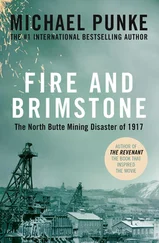‘London? He’s at university in London?’
‘Yes. At the London School of Economics. He has just started his final year.’
Magnus inwardly cursed Árni. He wondered whether Reykjavík’s finest detective had never found out where Ísak went to university, or had found out but decided that it wasn’t important enough to make a note of. Either eventuality was pretty bad. Moron.
‘I assume you are his mother?’
The woman nodded.
‘Do you mind if I ask you a couple of questions? It’s in relation to the death of Gabríel Örn Bergsson back in January.’
‘Of course, come in,’ the woman said. ‘My name is Aníta. Let me get you some coffee.’
‘Please don’t bother,’ said Magnus.
‘Nonsense. It’s one of the few things I can still do. My husband is playing golf: he won’t be back for hours.’
Magnus took off his shoes and followed Aníta into the kitchen where a pot of coffee was waiting. Agonizingly slowly she poured a cup for him. They sat at the kitchen table.
The woman seemed to be tired out already. Magnus resolved to get through his questions as fast as possible. ‘So Ísak was a student in London last year?’
‘Yes. He came back home for Christmas. And he was very interested in the demonstrations. Although term had started at the LSE he came back just for the opening of Parliament. He said it was a historic moment and he wanted to be there. I suppose he was right.’
‘So he went to the demonstration the day Gabríel Örn was killed?’
‘Yes. His father was furious, of course. He lost his job as a result of the protests.’ Aníta hesitated. ‘You said “was killed”. Didn’t the poor man commit suicide?’
‘Er, that’s what we thought,’ said Magnus. ‘So your son and your husband disagree politically?’
‘You can say that again. Samúel has been a member of the Independence Party since he was eighteen, and Ísak is a committed socialist. They disagree on everything: climate change, the aluminium smelters, Europe, you name it. It’s ironic, really, since they are both so fascinated by politics.’
‘How radical is Ísak?’ Magnus asked.
Aníta paused. ‘That’s an interesting question,’ she said. ‘By today’s standards, I suppose he is radical. I mean most of his friends want to go off and become bankers or go to law school. Or at least wanted to until this year. But Ísak still reads Marx and Lenin, although I don’t think he’s a communist or anything. Compared to my generation he’s just mildly to the left. Iceland has changed, hasn’t it?’
‘It certainly has,’ said Magnus.
‘Perhaps it will change back,’ Aníta said. ‘To the way it was. I hope it does before…’
Magnus was about to say ‘before what?’ when he realized the woman was referring to her cancer. She was growing greyer by the minute in front of him. He would be quick.
‘Did Ísak know a woman by the name of Harpa Einarsdóttir? She used to work at Ódinsbanki?’
‘No, I don’t think so. I suppose he might do, but most of his friends are still at university. Was she the woman he had a fight with in the bar?’
Magnus nodded.
‘No. That was the first time he met her.’ She frowned. ‘I don’t know what he was doing. He had never done anything like that before. He drinks sometimes when he’s out with his friends at weekends, but he never gets into fights. It must have been the excitement of the demonstration.’
‘What about Björn Helgason, a fisherman from Grundarfjördur?’
‘I very much doubt it,’ Aníta said. ‘One or two of his friends from school might have become fishermen, but he never mentioned anyone going to Grundarfjördur.’
And Björn Helgason was probably ten years older than Ísak, Magnus thought. ‘Or Óskar Gunnarsson? The former chairman of Ódinsbanki. He has lived in London for the past year.’
‘The banker who was murdered this week?’
Magnus nodded.
‘But I thought you were asking about the other banker’s suicide? You don’t think Ísak had anything to do with that man’s murder, do you?’
The distress came through strongly in her voice.
‘No,’ said Magnus. ‘No, not at all. I’m just trying to establish connections, that’s all.’
‘Well, the answer to your question is “no”. My son has never mentioned Óskar Gunnarsson.’
Magnus decided it was time to wrap things up. As he was leaving, Aníta, who had been frowning deeply, suddenly brightened. ‘Oh, there is one thing. Ísak was here this week. He came home on Monday and flew back to London yesterday. Óskar Gunnarsson was killed at the beginning of the week, wasn’t he?’
‘That’s right. Tuesday night.’
‘So that means Ísak couldn’t have been involved.’
‘I never suggested he was,’ said Magnus, apologetically.
‘Maybe not. But you were thinking it, weren’t you?’
As Magnus left Hafnarfjördur he thought about Ísak. It was a bit of a coincidence that he was a student in London. Magnus believed that Ísak’s mother really had no idea of a connection between Ísak and Óskar, and he was pretty sure that her son was indeed in Iceland when Óskar had been shot. But she was wrong when she said that didn’t mean he was involved . Maybe he hadn’t pulled the trigger, but it was quite possible that he had had something to do with the person who had.
Harpa was definitely linked to the two dead bankers. In Ísak’s case, the connections were much more tenuous, but still enough to alert Magnus’s interest. The next person to check out was Björn Helgason.
Magnus had the report of Árni’s interview with him in the car. It was probably three hours from Hafnarfjördur to Grundarfjördur, but it was a Saturday and he didn’t have anything else to do. But first he decided to drop in on Björn’s brother Gulli, with whom Harpa and Björn had stayed the night of Gabríel Örn’s death.
Once again checking Árni’s scanty notes, Magnus drove to the address in Vesturbaer, just behind the Catholic Cathedral. He parked outside a square grey three-storey building, and rang the bell marked Gulli . No reply.
He had just tried again, when a young woman in tracksuit bottoms and a hoodie took out a key to the building.
Magnus stopped her and introduced himself. ‘Do you know Gulli Helgason who lives in Flat Three?’ he asked.
‘Oh, yes I know Gulli,’ she said. ‘What’s he done?’
‘Nothing,’ said Magnus, his suspicions aroused. ‘Does he often get visits from the police?’
‘Oh, no,’ said the woman, looking confused. ‘No, not at all. He’s a nice guy, actually. Good at fixing things. Helps out the neighbours, especially the old lady on the ground floor.’
‘Do you have any idea when he’s likely to be back?’ Magnus asked.
‘No. I’m pretty sure he’s away on holiday. I haven’t seen him for a few days and his van has been parked there for a while. Hasn’t moved.’
She nodded towards a blue VW Transporter, with Gulli Helgason’s name and phone number painted on the side panel.
‘He’s a decorator, isn’t he?’
‘Yes. He used to be very busy, but not any more. With the kreppa. ’
‘No, of course,’ said Magnus. Painters and decorators would have been hit hard, he supposed. ‘Thanks for your help.’
According to his notes, Árni’s interview with Gulli back in January had confirmed that Björn had been staying with him, and that Gulli had seen Harpa at the flat the morning after Gabríel Örn’s death. It was unlikely that a further interview would reveal more, but you never knew. Magnus would be back.
After jotting down Gulli’s phone number, Magnus returned to his car and the long drive to Grundarfjördur.
Читать дальше












